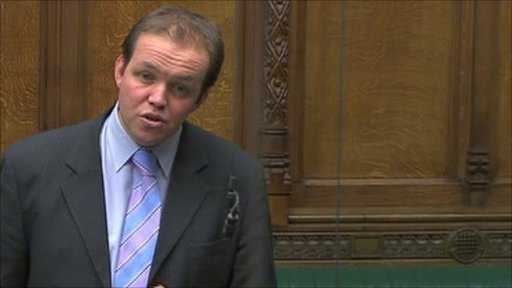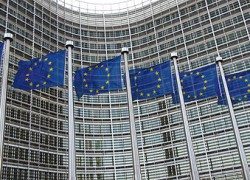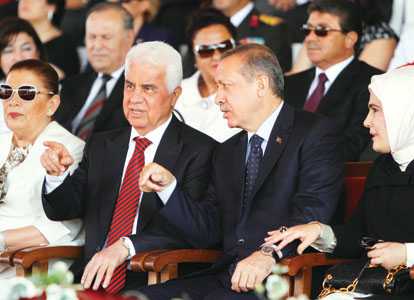What follows below is a yet another typical, toxic and vituperative anti-Turkish propaganda, this time from the notorious Turk-hater Congressman Sarbanes, the son of equally notorious Turk-hater Greek-American Senator Sarbanes—of originator of US-arms-embargo-on Turkey- in-1970s fame. Sarbanes spewed this disinformation and falsifications to mark the 36th anniversary of the Turkish rescue and peace operation on Cyprus on July 20, 1974 to protect the lives and liberty of the island’s Turkish Cypriots. First Sarbanes’ words, then my rebuttal. Enjoy!
***
CAN AMERICA RELY ON TURKEY ?
by Rep. John Sarbanes, Huffington Post, July 20, 2010
https://www.huffpost.com/entry/can-america-rely-on-turke_b_652739
Turkey has been getting a lot of attention recently. American foreign policymakers, among others, are beginning to realize that the United States cannot count on its ally Turkey in a pinch. But American surprise and dismay at Turkey ‘s increasing petulance on the world stage and among its NATO peers reflects just how naive the U.S. has been in its interpretation of Turkish behavior over many decades. Turkey ‘s unreliability as a NATO ally and its incompatibility with Western democratic values is well understood by those who have long suffered Turkish aggression in the Eastern Mediterranean .
Turkey ‘s failure to genuinely uphold the shared values of NATO makes it a weak link in the alliance. By design, NATO originated as a defensive political and military alliance for those countries engaged in the hostilities of WWII. Turkey , the largest NATO member not to have fought in WWII, was enlisted to reinforce defenses against the Soviet Union . Yet, in the summer of 1974, NATO member Turkey invaded and occupied more than one third of the island Republic of Cyprus . Coming at the height of the Cold War, and at a time of delicate relations between Greece, Cyprus, Turkey, and the NATO alliance, Turkey’s invasion of Cyprus risked war with NATO member Greece and a resultant rupturing of the NATO alliance.
Adding insult to injury, the weapons used by the Turkish military to invade Cyprus were those of its NATO benefactors, principally the United States . In 1975, the Congress imposed an arms embargo on Turkey for its offensive use of American weapons. Rather than fulfill its NATO obligations, or follow its legal obligations as demanded by Congress , Turkey retaliated by closing all American military installations on Turkish soil, and by severely restricting American access at two NATO bases. At that time, military installations in Turkey were deemed essential surveillance posts in the Cold War fight against the Soviet Union . Turkey refused to reopen these facilities until the U.S. lifted the arms embargo, signaling that its relationship with the United States was never more than a transactional one, rather than one rooted in a shared commitment to the rule of law, individual liberties, democracy, and collective Western security.
July 20th marks 36 years that the Turkish military has occupied Cyprus . In that time, neither the Republic of Cyprus nor its people have directed any aggression towards Turkey . In stark contrast, Turkey maintains an active colonization program where it is illegally resettling some 180,000 Anatolian Turks into the homes and possessions of the 200,000 Greek Cypriots it evicted from the occupied territories. The Turkish military is also systematically eradicating the Hellenic and Christian heritage from the occupied territories. All but five of the 500 Greek Orthodox Churches in the occupied territories have been looted, desecrated, or destroyed. To no avail, the international community, including the United States , the European Union, the United Nations, the European Court of Human Rights and the European Court of Justice have all called on Turkey to honor its international obligations and cease and desist from these hostilities against the people of Cyprus .
The Republic of Cyprus is a full-fledged member of the European Union. Turkey seeks that status as well, but as a NATO member illegally occupying European Union soil, Turkey puts NATO and the EU at loggerheads. The result is that the EU and NATO are unable to cooperate in the consolidation of their economic and strategic interests in the Eastern Mediterranean .
Turkey ‘s ongoing occupation of Cyprus is compelling evidence that it has little interest in meeting the standards of individual liberties, human rights and religious tolerance shared by America and other democratic nations. Lacking the ties that bind, Turkey is apparently quite willing to jeopardize relations with its long-time allies. Witness its 2003 denial of the deployment of US forces along the Northern Iraq border and its recent vote in the U.N. against Iran sanctions.
The United States and its allies must call upon Turkey to abide by international law and meet its responsibilities as a dependable NATO partner. And on this, the 36th anniversary of the invasion and occupation of Cyprus , the United States should demand an immediate withdrawal of the 45,000 Turkish soldiers now occupying northern Cyprus . Until that occurs, policymakers in the White House and in the Congress must press the issue in every conversation with their Turkish counterparts. In this way, the United States can work towards establishing a strong, enduring, and values-based alliance with Turkey that will serve to bring justice to the people of Cyprus , strengthen NATO, and reinforce collective Western security.
***
TURKISH INTERVENTION BROUGHT PEACE TO THE ISLAND – Part 1 of 8
The Cyprus question is one of the longest-running ethnic conflicts in the world dating back to the mid-1950’s. It is the result of the Greek Cypriot armed campaign to annex the island to mainland Greece – an irredentist ambition known by the Greek term enosis –against the will of Turkish Cypriots, one of the two ethnic peoples of Cyprus for over four centuries, and against the internationally established legal status of the state of Cyprus.
CYPRUS WAS BORN OUT OF A COMPROMISE, THEN RENEGGED ON IT – Part 2 of 8
The independent Republic of Cyprus was born as a compromise solution in 1960. The Republic of Cyprus was a partnership state based on the political equality of the co-founding Turkish Cypriot and Greek Cypriot peoples. It had a Greek Cypriot president and a Turkish Cypriot vice-president, each with veto powers to ensure political equality at the executive level. The legislature reflected the demographic balance between the two communities, on the one hand (with a 70/30 per cent ratio), and their political equality and effective participation in the legislative process, on the other. The judiciary was composed of one judge from each side, with a “neutral” judge from a third country as its president. This partnership Republic was guaranteed by the three “Guarantor” powers – Turkey, Greece and the United Kingdom – under a special international treaty, the Treaty of Guarantee.
DELICATE INTERNAL BALANCE WAS DESTROYED BY GREEK ULTR-NATIONALISTS, NOT TURKS – Part 3 of 8
The “state of affairs” thus created by the Zurich and London Agreements of 1960 was based on an internal balance between the Turkish Cypriot and Greek Cypriot communities, as well as an external balance between Turkey and Greece as the respective “motherlands” of the two ethnic peoples of the
island. This seemingly perfect system of checks and balances, however, faced a serious challenge within three years of its inception, when the Greek Cypriot side attempted to amend the Constitution by removing all provisions that gave the Turkish Cypriots a meaningful say in the affairs of the State. Failing that, they launched an all-out armed attack on the Turkish Cypriots throughout the island, killing and wounding thousands, driving one-quarter of the Turkish Cypriot population out of their homes and properties in 103 villages and causing widespread destruction.
GREEKS TURNED CYPRUS INTO A SLAUGHTERHOUSE VICTIMIZING TURKISH CYPRIOTS – Part 4 of 8
The ferocity of this onslaught was described by former Undersecretary of the US State Department, George Ball, in his memories titled “The Past Has Another Pattern” by observing that Makarios, the then Greek Cypriot leader, had “turn(ed) this beautiful island into his private abattoir.” He further stated that “Makarios’ central interest was to block off any Turkish intervention so that he and his Greek Cypriotes could go on happily massacring the Turkish Cypriots.”
THE TURKISH RESCUE OPERATION SAVED THE TURKISH CYPRIOTS FROM ANNIHILATION – Part 5 of 8
The Turkish rescue operation undoubtedly saved the Turkish Cypriot community from mass-extermination; prevented the annexation of Cyprus to Greece, and thus saved the independence of the island. Turkey’s legitimate and timely action has kept the peace on the island since 1974. Today, the Constitution of the Republic is dead and the “Cyprus” government has been completely usurped and monopolized by the Greek Cypriots. Turkish Cypriots and successive Turkish Governments have worked for the achievement of a settlement and have either initiated or accepted all major United Nations documents aimed at such just and lasting solution.
THE “ANNAN PEACE PLAN”: ACCEPTED BY TURKS, REJECTED BY GREEKS – Part 6 of 8
The latest and most elaborate document in this respect was the “Annan Plan” named after former United Nations Secretary-General Kofi Annan, who was the architect of the plan. The Annan Plan was put to separate and simultaneous referenda of Turkish Cypriots and Greek Cypriots on April 24, 2004. It was overwhelmingly accepted by the Turkish Cypriot people by a 65% majority; but was rejected by the Greek Cypriot people, at the behest of their leadership, by even a greater margin of 76%.
EU AND USA FAILED TO KEEP THEIR PROMISES TO TURKISH CYPRIOTS – Part 7 of 8
Although the United States, the European Union and other members of the international community have joined in the call for the lifting of the isolation of the Turkish Cypriots, little has been done to put words into action in this regard. What is at stake is not only the long-overdue and well deserved restoration of the human rights of the Turkish Cypriots through their integration with the international community, but also the credibility of those who have made promises and took decisions to end this
isolation. Concrete and meaningful steps in that direction will not only put an end to this untenable situation but will also help the unification efforts on the island by motivating the Greek Cypriot side to come to a just and lasting settlement.
NO BLOOD SPILLED FOR 36 YEARS, THANKS TO TURKISH INTERVENTION – Part 8 of 8
Despite the absence of an international solution to unify the island of Cyprus, Turkish Cypriots have been enjoying peace and tranquility and have developed strong democratic institutions, world class universities, tourism facilities and able entrepreneurs. In fact, Turkish Cyprus can be a model for other nations in that region on how to cope with hardship within the framework of democracy and respect for human rights. A beautiful country with its unspoiled nature and famous for its warm Turkish hospitality, the Turkish Republic of Northern Cyprus is a place worth visiting year around. For more information on travel and other issues related to the Turkish Republic of Northern Cyprus, please visit www.trncinfo.com.
***
For more information please visit: www.tc-america.org. and www.ataa.org




 The Turkish government declared that it will suspend its relations with the European Union if the Greek half of Cyprus takes the rotating presidency of the Council of the European Union scheduled in July 2012 without first solving the reunification issue between the Greek Cypriots and the Turkish Cypriots. Turkey’s Prime Minister Erdogan stated that Turkey does not recognize Cyprus as a nation.
The Turkish government declared that it will suspend its relations with the European Union if the Greek half of Cyprus takes the rotating presidency of the Council of the European Union scheduled in July 2012 without first solving the reunification issue between the Greek Cypriots and the Turkish Cypriots. Turkey’s Prime Minister Erdogan stated that Turkey does not recognize Cyprus as a nation.
 Turkey and northern Cyprus are planning to sign an agreement to draw an exclusive economic zone in the Mediterranean Sea and invite foreign companies for gas and oil exploration, in retaliation to Greek Cyprus’ scheduled drillings set for October.
Turkey and northern Cyprus are planning to sign an agreement to draw an exclusive economic zone in the Mediterranean Sea and invite foreign companies for gas and oil exploration, in retaliation to Greek Cyprus’ scheduled drillings set for October.

